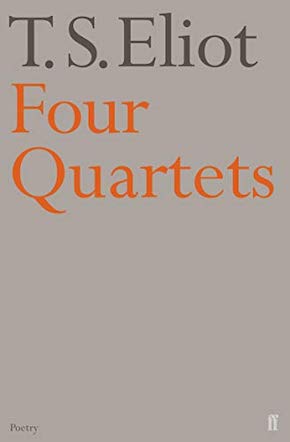“With affection, wondrous sensible” – a life of reading Shakespeare
by Mika Provata-Carlone
For Leonard Barkan, even the littlest things can mean the world. It is not size, but substance that truly matters. Readers of his (many, and “wondrous sensible”) books should take good note of this, and never skim, skip, or, worse even, skivvy, over his words or pages, for nothing in them is a mere “mouthful of air”. The dedication to his latest work, Reading Shakespeare, Reading Me, will prove the point. It reads very simply “For Benjamin Taylor, friend and inspiration”. Pass it by unsuspectingly, and you will miss the opportunity for many a vital digression; for a sense of the living presences that make for Taylor, as much as for Barkan, literature and the art of reading meaningful and an inalienable part of our human lives; for an understanding of what constitutes true inspiration, a real awakening of the spirit, a transubstantiation of the ineffable into a fully and sensually lived, worthwhile life.
Benjamin Taylor is a man, a thinker and a writer to discover in his own right, and in Barkan’s new book – a crossbreed between personal memoir and shared travelogue of a thrilling, deeply evocative, and radically consequential intellectual journey – he functions as an awesome signifier and cultural and philosophical pointer. He is there to chart the territory that lies ahead, set the criteria of what matters, what sustains, or what destroys, to define the tone and quality of the conversation and critical engagement to which we, as readers, are crucially invited.
“Everything I’ve written has come from three baskets of yarn,” Taylor said in an interview with Adam Fitzgerald in September 2012 for The Brooklyn Rail. “There’s mythology, a lifelong obsession. There is history, also a lifelong obsession. And there are inner lives – the stuff of stories and novels, a lifelong obsession. And I am always weaving these together, whether the book is a novel or a work of non-fiction… particular stories, particular events, particular personalities – not ideas – were the great teachers. I’ve developed a strong distaste for abstraction. What I love, yes, are myths, histories, novels, short stories, etc. Anything based in the particulars of humanity.” Such a take on art and nature, writing and reading, reality and the imagination, thinking and feeling, living and the understanding of existence, requires three key talents: what Judith Thurman, writing on Taylor in The New Yorker, described as “voluptuous erudition”; a veneration of the lost art of vital digressions; and what Taylor himself has termed as not appetite, but “appetitiveness of every kind”. It demands long reflection, rather than fleeting glances – “Because what you heard, saw, felt and learned gains meaning. You discover the right emphases, you delete what’s not germane, you find the form.” But it also embraces “playfulness, not arguments; suggestions, not doctrines; intimations, not conclusions – every venture a new beginning, as the poet says. Let’s drink to that.” Perhaps with some fine Socratic, judiciously diluted wine.
Barkan’s book (his entire corpus so far) resonates with Taylor’s toast to T.S. Eliot and his Four Quartets, all that this set of poems and the many realisations, declarations and visions that underpin it, stand for. Reading Shakespeare, Reading Me is itself one mighty “raid on the inarticulate / With shabby equipment always deteriorating / In the general mess of imprecision of feeling, / Undisciplined squads of emotion.” It is full of things that have “already been discovered / once or twice, or several times, by men whom one cannot hope / To emulate – but there is no competition.” Instead, there is, throughout, only a sense of sensitive wonder, and of sensuous affection. Barkan’s aim is to pen a long, many-layered essay about “the fight to recover what has been lost / And found and lost again and again: and now, under conditions / That seem unpropitious.” It is especially about the determined faith in what may appear to be “only the trying”. For “the rest is not our business” for Barkan, as was the case for T.S. Eliot before him.
It is a story of empathy, sympathy, pathos and passion, relationships and the relativity that underlies our most staunch convictions. The Shakespearean connections providing organic strands and lifelines.”
Barkan begins in media res, establishing a familiarity of intimacy, companionship and fellowship. His ideal or common reader is not a stranger, but the essential other partner of a vital relationship. His I can only exist with the prerequisite of a Thou, and the purported ambiguity of the title Reading Shakespeare, Reading Me, is in fact a firm statement of that palindromic exchange, interaction, entanglement of the self and the Other. An interpretation that “by reading Shakespeare I am reading me” is a false start, or at least a misleading and partial one, the true path being traced by the more complex and suggestive “as I am reading Shakespeare, you are also reading me”, yourself, the world, and more besides. We are reading life, and its meaning, its sensuousness and wondrousness, its tragedy and joy. From wraith-like, yet cantankerous father figures and historiated Savonarola chairs (the symbolic echoes and momentous forebodings are inevitable), to mother figures capable of astonishing feats of elevation, and endowed with the strongest Earth-Goddess attributes, to evocative summers of inspiration, aspiration, and plain-old daydreaming and sun-basking, from houses with walls and nooks that speak, with chinks that let through rays of revelation or apocalyptic light, and antiquarian shops where treasures co-inhabit cluttered space with treasurable trifles, Barkan’s is a narrative that is complex, polyprismatic, with a singular focus on both the eye and the I: our uniquely human trait of looking at things, of projecting images and of reflecting visions, of receiving perspectives and sharing views. It is a story of empathy, sympathy, pathos and passion, relationships and the relativity that underlies our most staunch convictions. The Shakespearean connections are interwoven throughout, providing organic strands and lifelines.
“Not only was I in love with Shakespeare, but I also found in his work the key to my own life,” Barkan tells us from the start, and it is hard to miss the Socratic echoes and injunctions: the life motion is eros, in its fullest, richest, most celebrated form; the necessary form and substance of it all being that examined life, without which process everything falls apart, meaningless and irrelevant, a loss and a hubris all at once. Barkan’s love is still a burning one, and that key is still in his pocket, opening doors old and new for Barkan himself, and the many others he has inspired, taught, guided and mesmerised along the way. “Wherever I have turned in life, Shakespeare has popped up, not the historical man or the cultural icon: rather, the life inside the work has seemed to me something like an undifferentiated extension of real experience, a guide to living my own life.” Explicitly referencing Leopold Bloom’s quest for a “warm, fullblooded life”, as well as Walt Whitman’s stentorian proclamation of contained multiples, the “body electric” and the “song of myself”, Barkan gives us a paean for critical intelligence, cultural belonging, layered and reflected reading, above all for an immensely demanding and hugely rewarding type of dialectics. “The thread that will become the book’s fabric is reading [and] reading… needs to be the discovery of the Other… The true, the inveterate reader, enters the worlds of fictions and experiences them page by page as person-to-person encounters” – but also as intensely personal, transformative engagements.
To “read me” is never a solipsistic exercise or a gesture of narcissistic inscription. Barkan’s project is the very opposite of today’s totalitarian and totalising campaigns of self-supremacism. It is, in fact, a deliberate act of resistance to all forms of self-isms, self-fabrications, self-diktats and dictatorships of the ego. The voice speaking, the I writing and reading throughout, is that of a personal and philosophical journal intime, a sharing of thoughts, perceptions, intellectual and experiential journeys of growth, understanding, socialisation. Barkan’s companions, along with Shakespeare, the voices in his head and soul egging him on and urging him further, could not be more seminal or indicative: Cervantes, St Augustine, Montaigne and Dante are his quadrumvirate, each a “radical who dares to say, ‘I am writing about myself’”, in order to relate with you, with others, with existence itself, and only to the extent that this writing is part of that greater palimpsest of voices and inner lives that have preceded it and will supersede it in due course.
For Barkan the issue of palimpsests and tabulae rasae is a central one, a vital balance between pre-Fall innocence and post-Fall knowledge, between individuality and community, between agency and, to a significant degree, acceptance of limitations and mortal destiny. That necessary equilibrium is the ineffable context of the gesture and the value of all reading: we need innocence to genuinely encounter the Other and ourselves; we need the wisdom and experience, the humility of mere humanity to truly engage with, recognise, both. Barkan is a particularly gifted close reader precisely because he possesses, and moreover cherishes, this state of dynamic balance that is constantly re-established, eternally reaffirmed. He knows how to fine-tune languid pondering and avoid philologising, while relishing the treasures that a humble Shakespearean word or phrase can yield, if only one looks at them carefully, and listens quietly, with the caring of a companionship that is as intellectual and intelligent as it is instinctively human and intimately personal.
Reading Shakespeare, Reading Me is about the self as Other, and the self as part of the Other. It is especially, explicitly and crucially, about the value of the educated life, and a culture of learning and understanding.”
Barkan does not simply show a way of how to think about Shakespeare – although he certainly does do that, brilliantly, breathtakingly, profoundly, with the accumulated visions and revisions of fifty years of teaching, reading and writing. What he offers, above all else, is tremendous insight into how to learn to think and why that matters, especially now. He does so through encounters, engagements, exchanges, and coming to grips with others, with the Other, with Shakespeare above all. He tells us beguilingly, but also unyieldingly, about how his thinking was shaped and took form and substance, why this – essentially classical, Judaeo-Christian, Greek, Roman, European – form and substance matter. Reading Shakespeare, Reading Me is about the self as Other, and the self as part of the Other. It is especially, explicitly and crucially, about the value of the educated life, and a culture of learning and understanding. About the life-value of a humanistic education, and more specifically of that tradition he has called elsewhere the common topos we share, whether in debate or in a common feeling of belonging. It is this shared tradition that has given us the necessary training of the mind to think critically, both individually and as a society, to see clearly, to seek to portray incarnate as well as abstract beauty, to cherish freedom and fairness, but also to respect and safeguard relationships and the space of others. To feel that there is something beyond our (vain)glorious or mere selves…
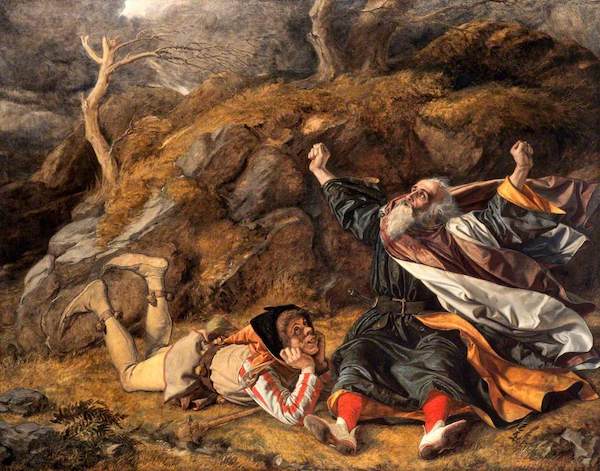
Reading Shakespeare, Reading Me is essentially (and in very essential terms) the compendium of a life and the vademecum of a teacher. It is an intimate portrait of a very public intellectual, and a riveting anthology of essays that distil decades of lectures and class notes. You will meet the man as you relish discovering his mind, you will form the deepest bond of friendship as you read the two hundred or so pages of this book, at the same time that you will come out of the encounter feeling that you have partaken in a magnificent, and magnificently Socratic symposium of learning, about Shakespeare especially, but much more besides. Barkan does not compromise either scholarly analysis or the examination of a life by creating forced hybrids. Rather, his most formidable strength lies in knowing how to create that space of “two distincts, division none” which alone sustains both existence and real intelligence. Shakespearean categories acquire renewed living validity through autobiographical reflections and refractions, and the many chambers and paths of a life find structure and essence through the metaphoricity of Shakespeare’s words, characters, the near-celestial harmonies of his rhyming couplets, and the complex visuality of his narrative fabrics. Neither is subordinate to the other: life and fiction contain equal multitudes and magnitudes of harrowing tragedy and numbing terror, comparable cornucopias of the sublime and the risible, the awe and sheer delight of words and life.
Barkan’s own term for this symbiosis of the real and the fantastical, things and the words to say them, is “braided narratives”, and one cannot but think of dexterous hands shaping challahs for endless seders to both celebrate and account for a life – a life of the mind, a life of lived experience, of the ordinary and the extraordinary. He emphasises throughout the critical difference between disingenuous pedantry (or feigned primeval ignorance), and the simple wisdom of Shakespearean fools anticipating by nearly half a millennium Kipling’s If: “Have more than thou showest, / Speak less than thou knowest, / Lend less than thou owest, / Ride more than thou goest, / Learn more than thou trowest, / Set less than thou throwest; / Leave thy drink and thy whore, / And keep in-a-door, / And thou shalt have more / Than two tens to a score.”
The inter-entangledness of everything, of everyone, emerges as a sharp prism through which to assess the very quality of our understanding of the world and ourselves. A true Aristotelian, Shakespeare notoriously uses Fools or those whose voice contradicts the dogmatism of egos and of tyrannical societal set-ups in order to articulate (and embody) wisdom; humour in order to uncover or to illustrate darkness; comedy so as to render possible our engagement with tragedy. Barkan follows him in this to the letter, employing diversions to achieve ineluctable directness, reflexivity so as to achieve the sharpest, most absolute image of the real. He familiarises us with the bard in the old sense of intimate friendship, but also so as to remind us that he wrote as a real living person, about life stories for which he created fictions, for real readers so that they might have the words, images, ur-narratives through which to attempt their own telling and reading of their lives. Ultimately, Barkan’s project is methectic and maieutic, Aristotelian and Platonic all at once: the mind, that sublime, Aristotelian Nous, furnishes the edifice which will be inhabited by the wise, merely human man of the market streets; “fullblooded life” is not only reconciled, but vitally sustained by both the ideas and the ideals that make it meaningful, examinable, a life worth living. The process is far from evident or easy, though. It requires face-to-face encounters and even confrontations with near primordial Schuldt, legitimacy, indebtedness, the authentic, and not with merely factual truth and falsehood, the notion of the essential limitations of freedom, the responsiveness of agency, the receptivity of independence, the juncture between language and experience, action and thought, personal drama and divine comedy. Yet the moment of that encounter is far from a Nietzschean one: “I have an intuition not so much of sorrow, as of emptiness. It is not, in other words, tears that come to my eyes, but a perception of… nothing. But a Nothing so palpable that it is somehow a Something.” Staring at the void is a vital gesture towards embracing the fullness of life, a formidable confession of faith, resilience, the ability for “idealism [and] unguarded love” Barkan has always stood for and lived by.
That perceived ‘nothingness is all’… is never a nihilistic mantra, but rather an affirmation that we are more than mere materiality, as much as that true revelation comes from the word made flesh.”
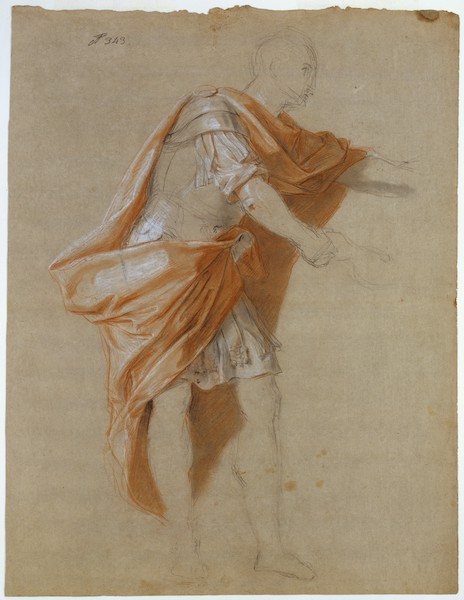
Shakespeare quintessentially bases almost everything on that somethingness of nothingness, on that fundamental understanding and acknowledgement that all we see, or are capable of seeing, is not all there is, or everything we should believe in. In plays such as King Lear, Barkan tells us, “Shakespeare is toying with us, withholding the catharsis its finality.” And one should add that this is the very measure of true Aristotelian (all human) tragedy. Think of Sophocles, Euripides or Aeschylus: the stage is the world bereft of perspective, deprived of the redemption of pain and humanisation that comes from reflection or a culture of understanding. The power of such drama is to fuse experience and pathos into the “moment after”: catharsis is for the spectators alone, if (and only if) they can engage in both the personal and the communal, in empathy as well as passion, in the communication of thought and feeling. That perceived “nothingness is all”, which is never a nihilistic mantra, but rather an affirmation that we are more than mere materiality, as much as that true revelation comes from the word made flesh; that we are only complete as individuals when we are “social animals”; that we are only I when we engage truly with Thou. The absence of the zero in Greek mathematical thinking is also a declaration that that somethingness of nothingness is unnegotiably beyond ratiocentric quantification.
Reading Shakespeare, Reading Me revolves around homes and aways, childhoods and adulthoods, parenthood and offspringdom, especially the spaces and the states in between. It anchors itself on three of Shakespeare’s plays in order to create constellations of both luminous points and abysses of significant darkness. King Lear raises the issues of families and selves, (self-)knowledge and illusion, truth and lies, good and evil; A Midsummer Night’s Dream evokes Bruno Bettelheim’s The Uses of Enchantment, and it could have also summoned as powerfully Walter de la Mare’s essay on Rupert Brooke, and his concept of the Intellectual Imagination, to state the case for myths and fairy tales as a way to create communities of understanding and empathy. “All that I know for certain is that the magic of the play, and the forces of darkness that the magic first makes worse and then makes better, somehow got instilled as proof that darkness could encounter light, that threatened tragedy could encounter true laughter, that [lightness] existed at the readily accessed margins of the ever-threatening world.” Coriolanus (fearsomely coupled with All’s Well That Ends Well, Macbeth, Hamlet and A Winter’s Tale) creates a bas relief for the ambiguities and ineffabilities of bonds of kinship: Mothers and Sons, Wives and Husbands, Rulers and People, especially of women as tragic heroes, and men as dramatic figures, of Mothers tout court and looming large, yet unencumbered by Louise Bourgeois associations. Whatever the point of focus, the pause for thought or the occasion, it is the imagination, the instinct for believing in a worthy existence and in beauty which have rendered us human on the (rare?) occasions that we have been worthy of our own humanity: “there was a divinity existing before time and it was called beauty; its followers across the ages are linked together by that belief; and our theology is called aesthetics, our worship is called desire, our history is called the History of All the Arts, and it is gloriously intertwined.”
You would be wrong (plain wrong) to see Barkan’s aestheticism as being akin to Wilde’s or any fin de siècle pre-Freudian model of sublimation. The driving force throughout is once again the full-blooded aesthesis of life and the cosmos, and Aristotle’s and Plato’s, Bettelheim’s and Shakespeare’s concept of enchantment, wondrousness, awe, and the talent to admire as a response to, and reassurance against, the disenchantments of a private life, of history, of the social self and the Other. The links and entanglements are Warburgian rather than Jungian, a parallel (and ever-converging) Mnemosyne project as a liberator from the “tyranny of calendars, maps and provability” – but also from insular cultural categorisations and non-dialectical historical predestination. Barkan never advocates licentiousness or a rebellion against what is: it is precisely because he acknowledges and profoundly respects historical, cultural, even personal de factos that he is capable to transcend boundaries. It is because of a strong sense of belonging that he is able to explore beyond what is familiar, to open up or even establish ab ovo the most fruitful and vital conversations.
As himself (Jewish, American, an intellectual very much part of the Western tradition he considers critically sustaining and inspiring), he is able to see and engage with the Other (you name it, nothing is left in the margins, or falls through the cracks). Barkan distrusts -isms, polemics, and exclusive either/ors, as much as he refutes globalistic jumbles and one-size-fits-all diktats. It is these that comprise “the rest [that] are not our business”. And yet even in his ecumenical approach, some parts of humanity’s journey feel more like home, and for Barkan that is the pre-Christian classical tradition, at least in principle, since readers of what must be acknowledged as a Barkanian corpus will have noted the vital correspondences, the formidably illuminating readings and cross-analyses that are organic to every step of his path, personal as well as intellectual. As he puts it, “this is where Shakespeare comes to the rescue” – as a crossroads, as a consortium, as a compendium and communal repository of humanity and the sustaining culture it seeks to create, as a multifaceted forum or chamber of mirrors where no life can go unexamined, so that it may fully find and live out its worth and meaning.
It is a dialectics of exchange as well as change, of growing further without growing away, of attachments without shackles, of dreams of thoughts that do not become monsters.”
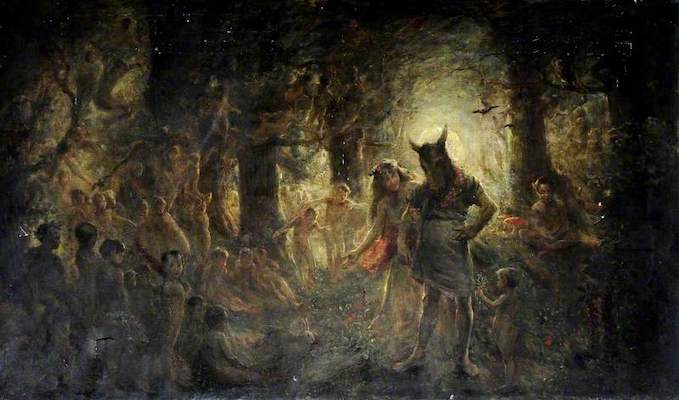
Shakespeare assumes we all share in this common human project, have access to its multitudes, while maintaining our individual singularities. For him, as for Barkan, nothing is mere fluidity or flux: everything is elemental and constituent, distinct and a part of, a single unique voice in a dynamic polyphony. His “audience is both being educated in reading levels of reality and flattered by the assumption that they already know how to do this reading.” This requires a recognition of communal constants as well as of a continuity of historic conscience and belonging. In Shakespeare, the Renaissance is anything but a brand new beginning. It is rather an act of bringing to the forefront a reality of dynamic cultural becoming that never loses any of its elements, but rather engages with ever renewed conversations. Shakespeare’s antiquity is never an exotic find, or a recovered relic. It is rather an objective correlative, informing and nurturing each and every moment in time. This is what he recognises, what makes him unique among the ‘revivalists’ of his time: like Botticelli, he does not view the past, any of it, and wherever it might lie, as being dead and in need of a phoenix-like resuscitation. It is there, always and already, a companion to our own vision and image of ourselves and the world.
Barkan adds Freud’s “family romance” theory of the multiple self-fictions that allow us to explore and reattach ourselves to reality in order to “weave the theory of the family romance into a theory of history”, into a way of looking and understanding beyond the personal – yet without ever discrediting the latter. It is yet another point of resistance to our self-obsessed, self-referencing, merely omphaloscopic society. It is also a very different definition of the notion of encounter, of true engagement, of readerly innocence and ecumenicity rather than dominance in cultural valorisation. Our contemporary culture has not only rendered the “innocent reader” impossible through the bombardment of cultural noise, it is attacking the very notion of openness that would allow for a rapprochement between past meanings and current Nachlebens or ever more polyphonic cultural horizons. Barkan laments and condemns a totalitarianism of liberalising censorship that kills off both substance past and substance present, leaving no possibility for substance future. Shakespeare himself was using (and creating) a tradition of both innocence and experience: as early modernity sought ways of continuity and ex nihilo beginnings, the past acquired an extraordinary value as a virginal territory of exploration and as an archetypal shared world, a diachronicity of presence, so to speak. It is a sense of being we should preserve for dear life, quite literally.
This is what Shakespeare does, and Barkan too: by conjuring up models of being-in-the-world and the many aspects of belonging, by searching for an identity in multiplicity, and yet defying fluid amorphousness, or any appropriation of what is not us but Other, by dreaming of, yet also facing up to the pitfalls of “forging in the smithy of [one’s] soul the uncreated conscience of [a truly human] race”, they demand that we engage in conversation, that we relate stories, and that we connect, that we reflect, feel, experience, find the words for all that we should deem part of our human selves, our human capital, the legacy we were given and are required to pass on. It is a dialectics of exchange as well as change, of growing further without growing away, of attachments without shackles, of dreams of thoughts that do not become monsters. It is also about the potential loneliness of intimacy, the intimacy of aloneness, about “language that calls attention to itself as language – exquisite yet futile, indeed put in the service of its own futility.” Once again it is all about the somethingness of nothingness, and the faith in what is beyond our merely human conception, existence, comprehension. Because existence is “more about contradictions than about summations”, and real life is more about imagined possibilities than cultural materialism or Marxist humanism, deconstruction, or even the moment of mad destruction.
Readers of Reading Shakespeare, Reading Me will relish both the journey and the arrival; the old and the new; the intimacy of a friendship and the wondrous unattainability of eternity. They will learn how to negotiate both being and nothingness, how to relish brilliance, and how to explore obscurity. They will share the encounter of an extraordinary mind (Shakespeare’s) with an extraordinary teacher (Barkan), and will miss the voice of a friend (again Barkan, but also Shakespeare) once they have turned over the book’s last page. There will be very few regrets along the way, a forced concession or two to certain cultural battlegrounds being one example, which somehow feels alien to all that Reading Shakespeare, Reading Me otherwise contains. But then it is the exception that always proves the rule: namely that a new book by Leonard Barkan, and a very generously personal one at that, is certainly a thing to cherish, and to relish, all at once. Spoiler alert: rumour has it that Barkan is busy on the next one!
—
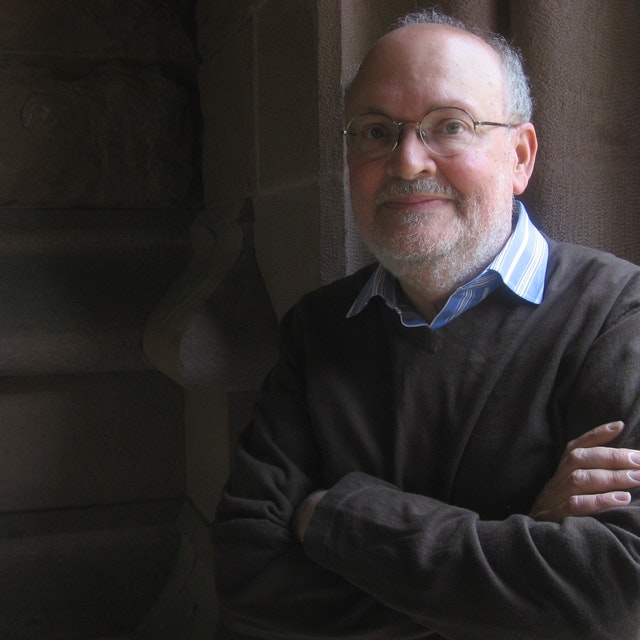
Leonard Barkan is the Class of 1943 University Professor at Princeton, where he teaches comparative literature, art history, English and classics. His many books include The Hungry Eye: Eating, Drinking, and the Culture of Europe from Rome to the Renaissance (Princeton, 2021), Berlin for Jews: A Twenty-First-Century Companion (Chicago, 2016), Michelangelo: A Life on Paper (Princeton, 2010), and Unearthing the Past: Archaeology and Aesthetics in the Making of Renaissance Culture (Yale, 1999), which won prizes from the Modern Language Association, the College Art Association, the American Comparative Literature Association, Architectural Digest and Phi Beta Kappa. Reading Shakespeare, Reading Me is published by Fordham University Press.
Read more
@LeonardBarkan
@FordhamPress
Mika Provata-Carlone is an independent scholar, translator, editor and illustrator, and a contributing editor to Bookanista. She has a doctorate from Princeton University and lives and works in London.
bookanista.com/author/mika/

